
How to make your own primitive knife handle (simple guide)
👉 The key facts from this guide
- Choose ideally a hardwood like beech or oak for your knife handle. Birch or wild cherry also works. Each wood has its character, which gives your knife a unique touch.
- Precisely saw the wood to the correct length and carefully drill holes for the blade - use a cordless drill with a wood drill bit or try alternative methods like burning in the holes.
- Carefully fit the blade into the drilled holes - this process requires patience and finesse to find the perfect fit.
- Permanently connect the blade and deal with epoxy glue - this step is crucial and requires precision, as there is no going back.
- Carve and shape the handle to your liking - let your creativity flow and transform the wood into a personalized piece of art.
- Keep trying out the handle and adjusting it until it feels like a natural extension of your hand - this final touch makes your knife something special.
I always wanted to build a knife.
A dream that gathered dust in the drawer.
Until Axel showed up.
He delivered the blade as requested.
Cold forged.
Completed by his hands.
Perfect, but naked.
The handle was missing, a gap waiting to be filled with life and personality.
My chance.
Have you ever dreamed of creating something with your own hands? Something that is not only functional but also tells a story? Your story?
Let's go on a journey together, a journey that will take you from an unremarkable piece of wood to a work of art that you will one day proudly hold in your hands.
Your Arsenal: What You Need for Your Knife Odyssey
You are at the beginning of your journey.
Like every good adventurer, you need your equipment.
Here is what you should pack in your backpack:
- A piece of hardwood (beech, oak, birch, or in my case, chokecherry)
- A blade (cold-forged, if you know an Axel)
- A Drill and wood drill bits (or strong arms and a lot of patience for manual methods)
- Epoxy glue - your magical potion of union
- Carving knife - your wand of creativity
- Sandpaper in various grits - for the final touch
- Safety glasses and gloves - your armor against the perils of craftsmanship
And when we have gone through all the steps, the knife looks like this:
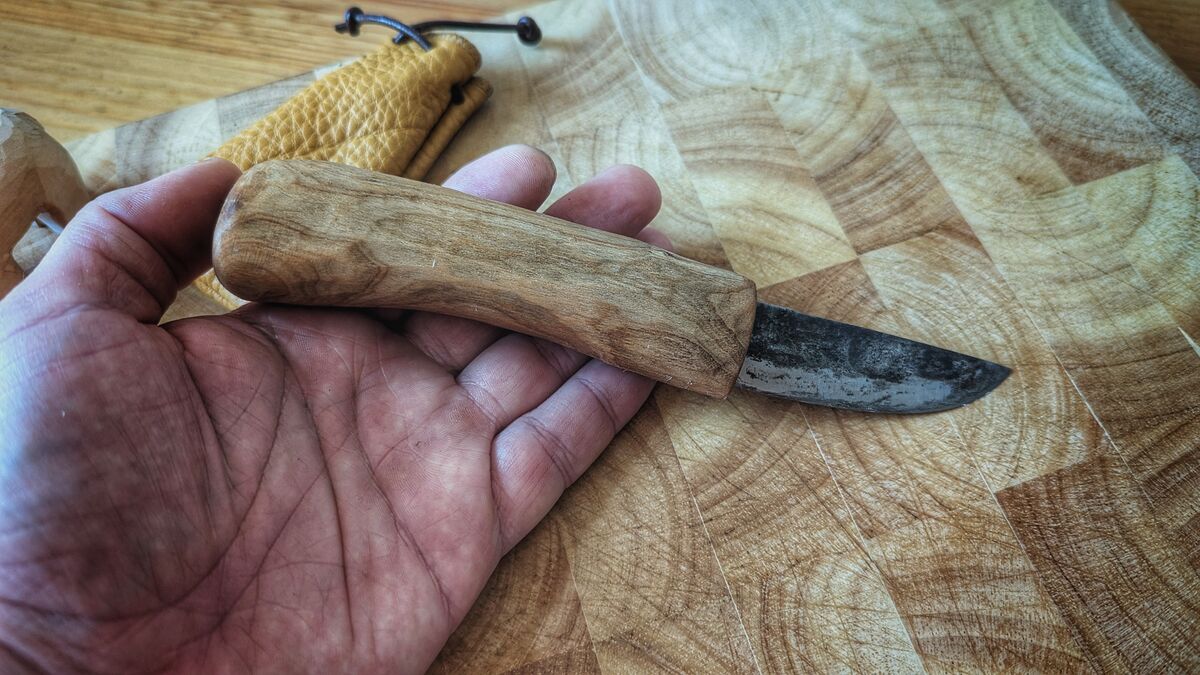
So let's start with step 1.
1. Choosing the Perfect Wood: The Foundation of Your Knife Handle
Everything begins with a piece of wood.
Not just any wood.
Ideally, you should use hardwood. Beech, oak, birch - each has its character, its own story to tell.
I chose bird cherry. Why? Because it's different. Unexpected. Just like Axel's blade, which is now waiting to form a symbiosis with this wood.
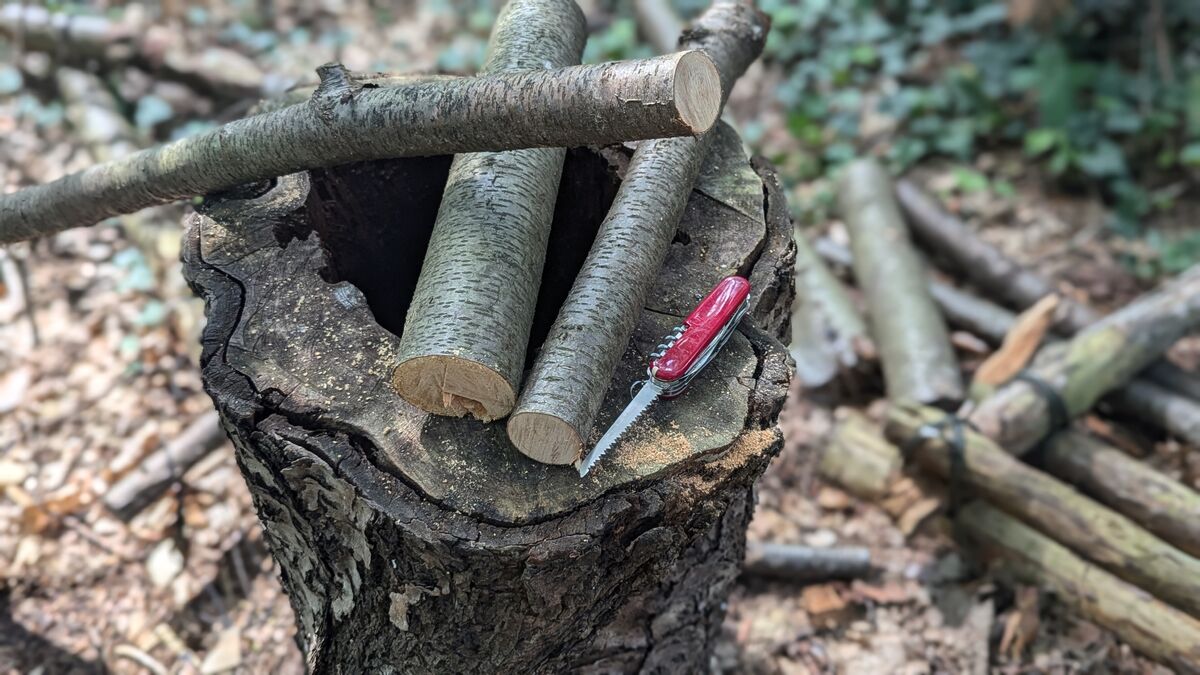
2. Precision and Patience: Cutting the Wood
Now it's getting serious.
Saw the wood to the correct length, a process that requires precision and patience. Because, as with so many things in life, the right measure is crucial here as well.
For larger woodwork, you can also use a hatchet or an axe. Here you can learn the difference between a hatchet and an axe.
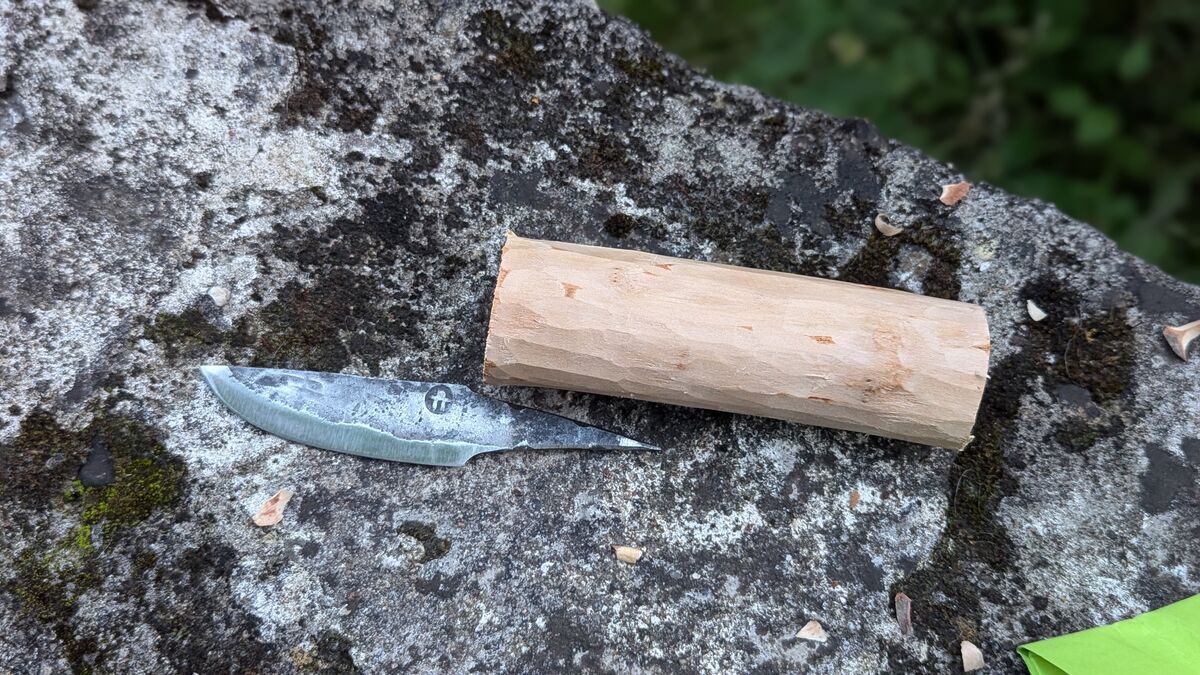
Too long? Your knife becomes unwieldy, a bulky object that hinders more than it helps. Too short? It disappears in your hand, a fleeting thought instead of a tangible tool.
Find the perfect balance, the sweet spot between functionality and aesthetics.
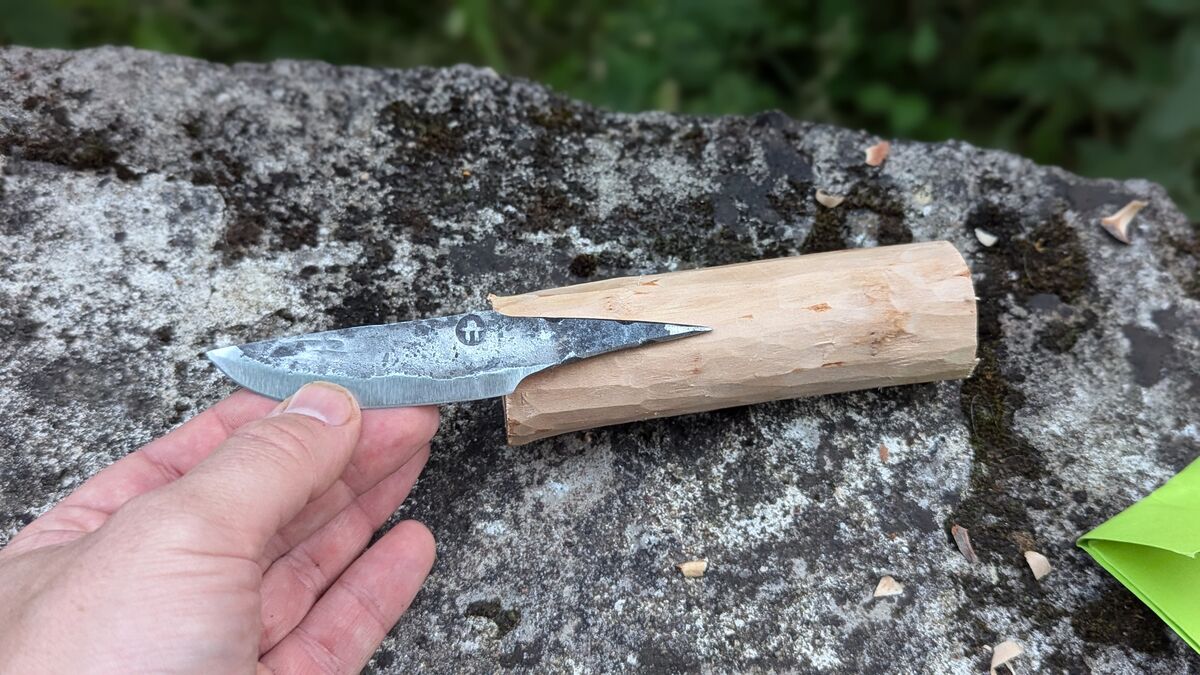
3. Drilling with Care: Preparing for the Blade
Drill holes.
Not just any holes.
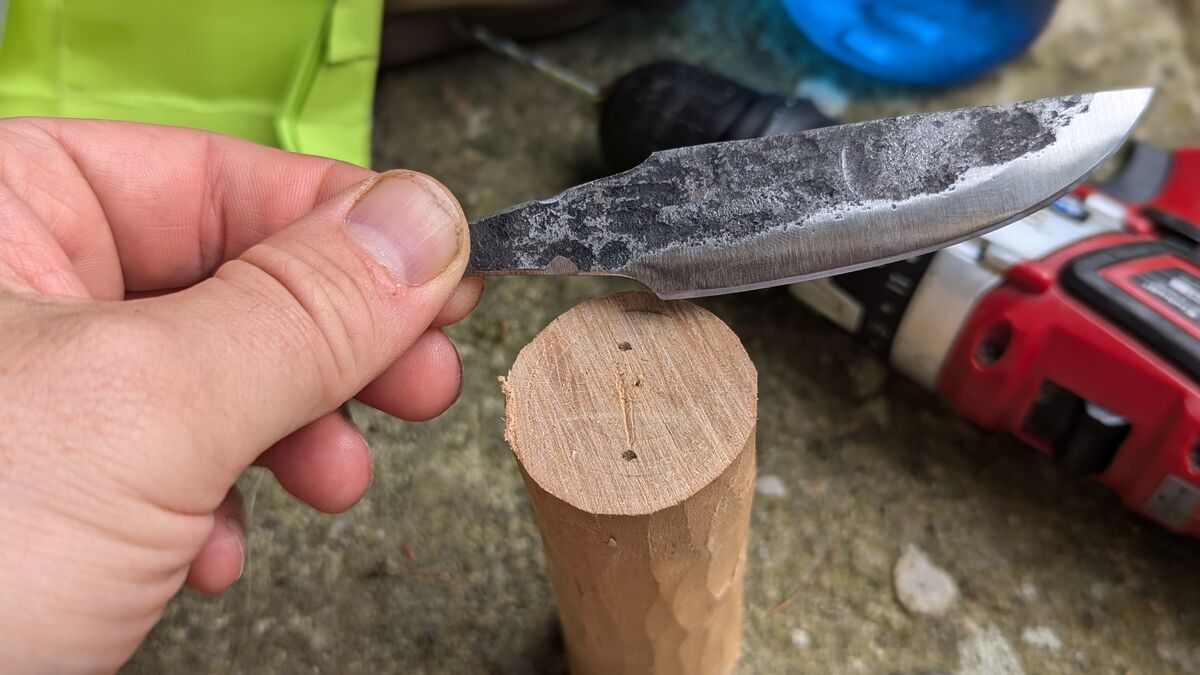
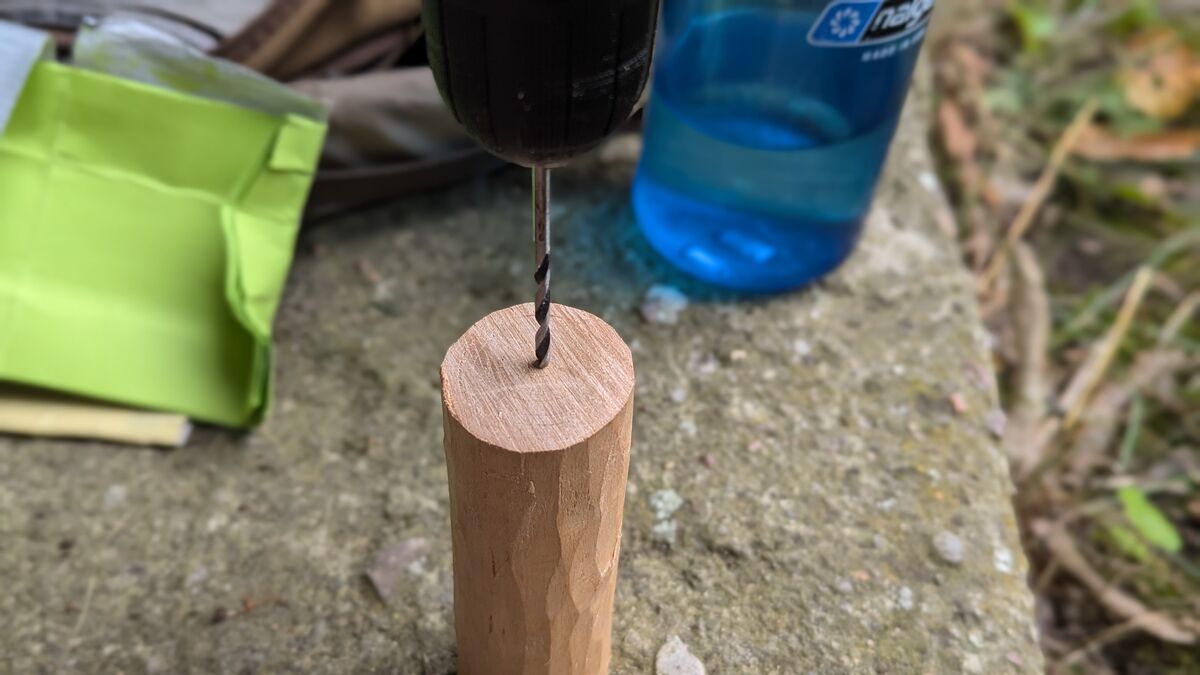
These holes will house the blade, they are the cradle in which the blade will rest. With each drilling, you penetrate deeper into the heart of the wood, creating space for something new, something magnificent.
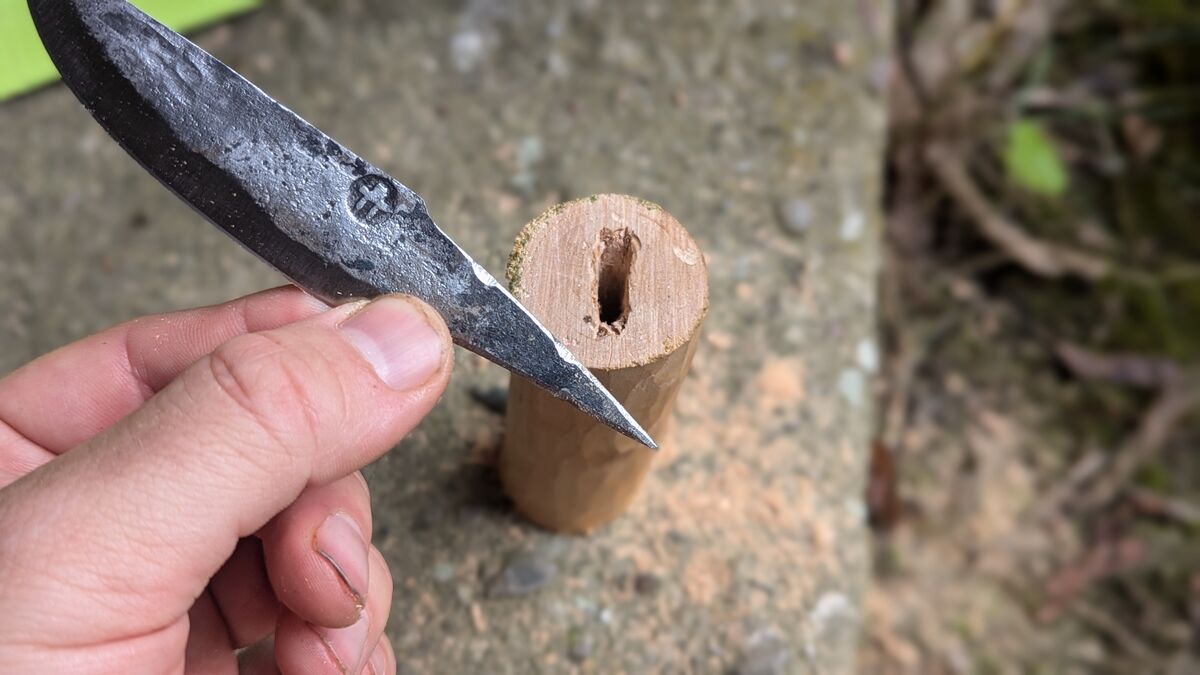
In detail: I used a cordless drill and wood drill bits to drill the slot for the blade. There are other methods, such as burning in, where you don't need any electrical devices.
4. Fine Work and Adjustment: The Blade Meets Wood
Now comes the difficult part, a balancing act between strength and finesse.
Insert the blade into the hole, a process reminiscent of the precision work of a watchmaker. Every movement, every adjustment brings you closer to the perfect fit.
The technique of batoning is also helpful for woodworking with a knife.
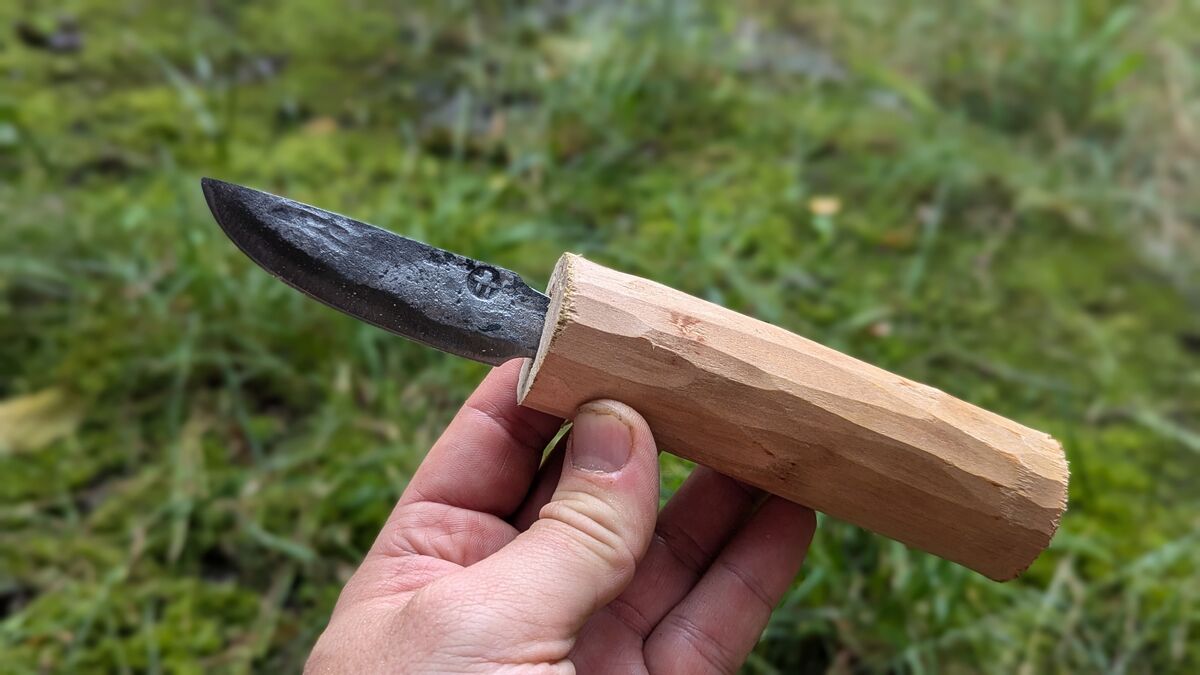
So find the perfect fit.
It's like a dance. A back and forth. Adjust. Again and again. Until blade and wood seem made for each other.
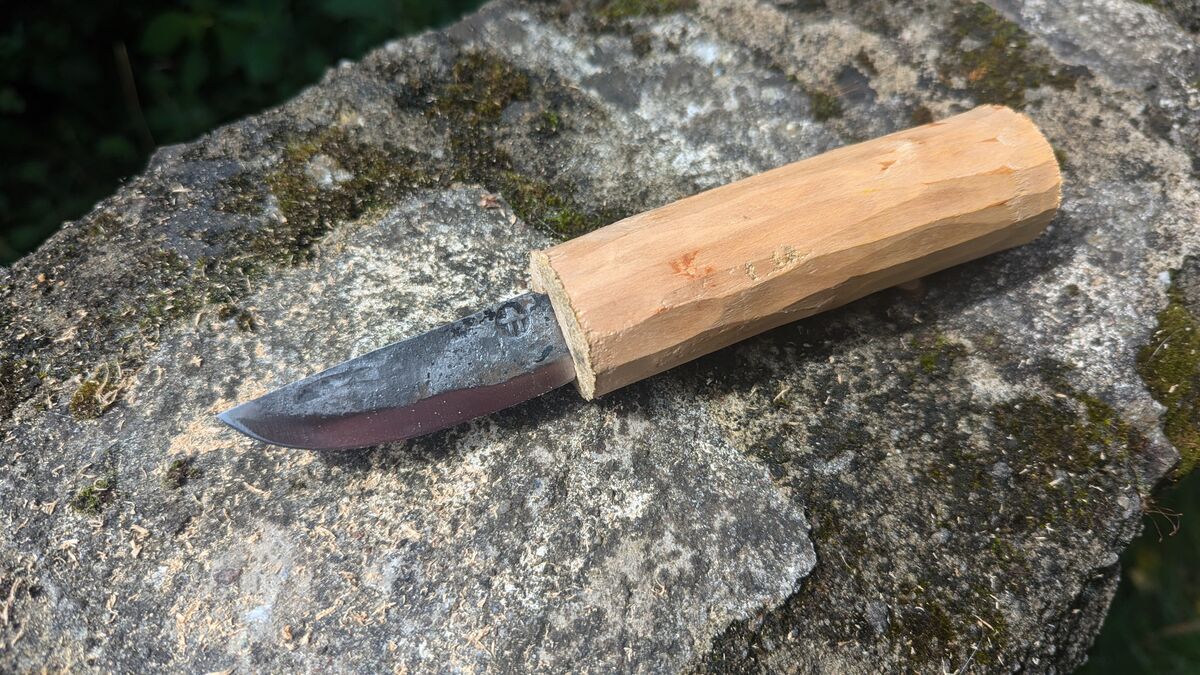
5. The Moment of Truth: Blade and Handle Become One
Grab some epoxy glue (here's my recommendation).
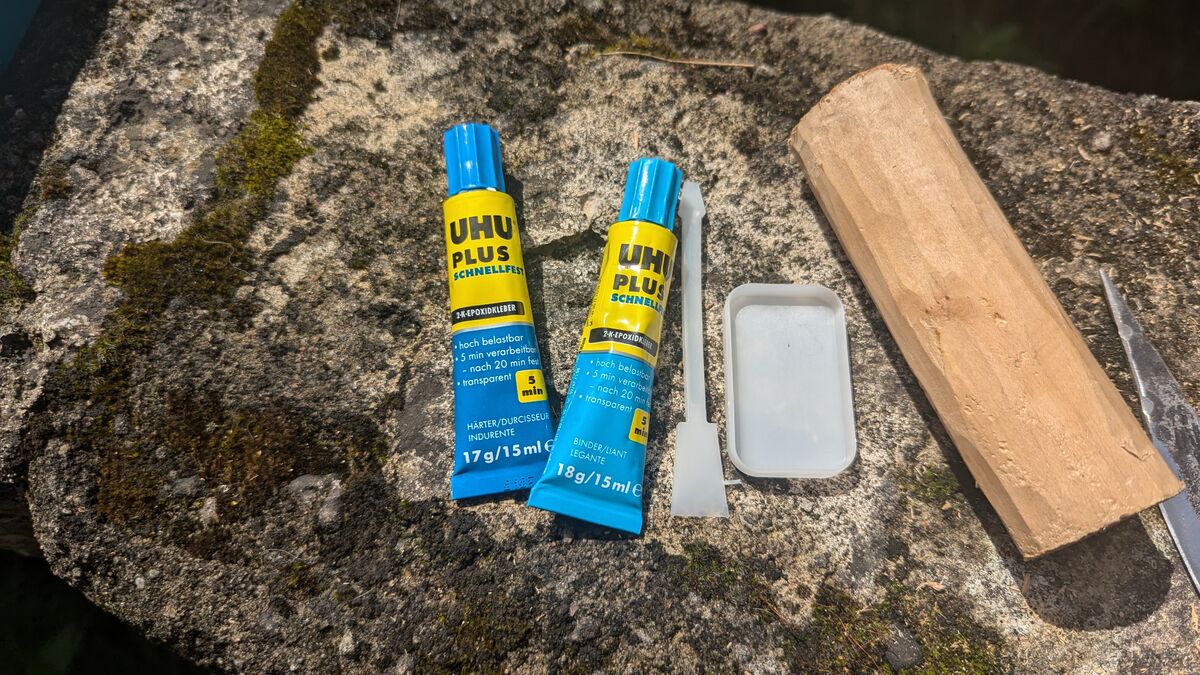
Stir the glue.
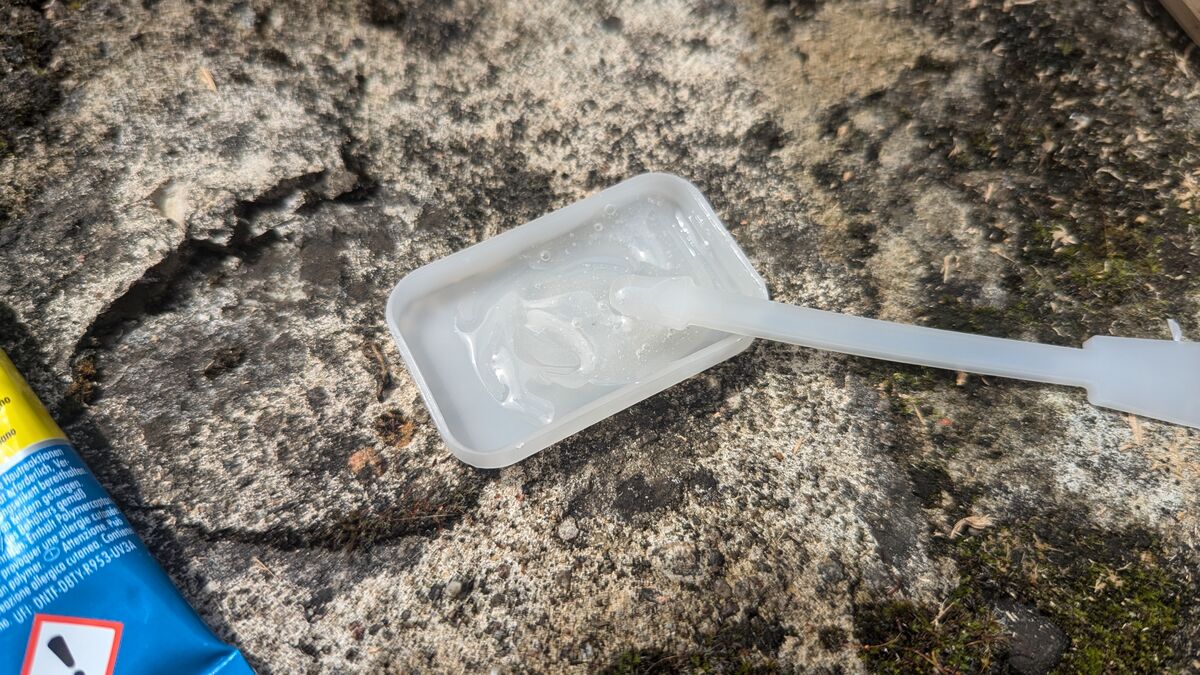
Then the moment of truth.
With trembling hands and a pounding heart, you forever join the blade with your handle, a marriage of steel and wood that will endure the test of time.
There is no turning back.
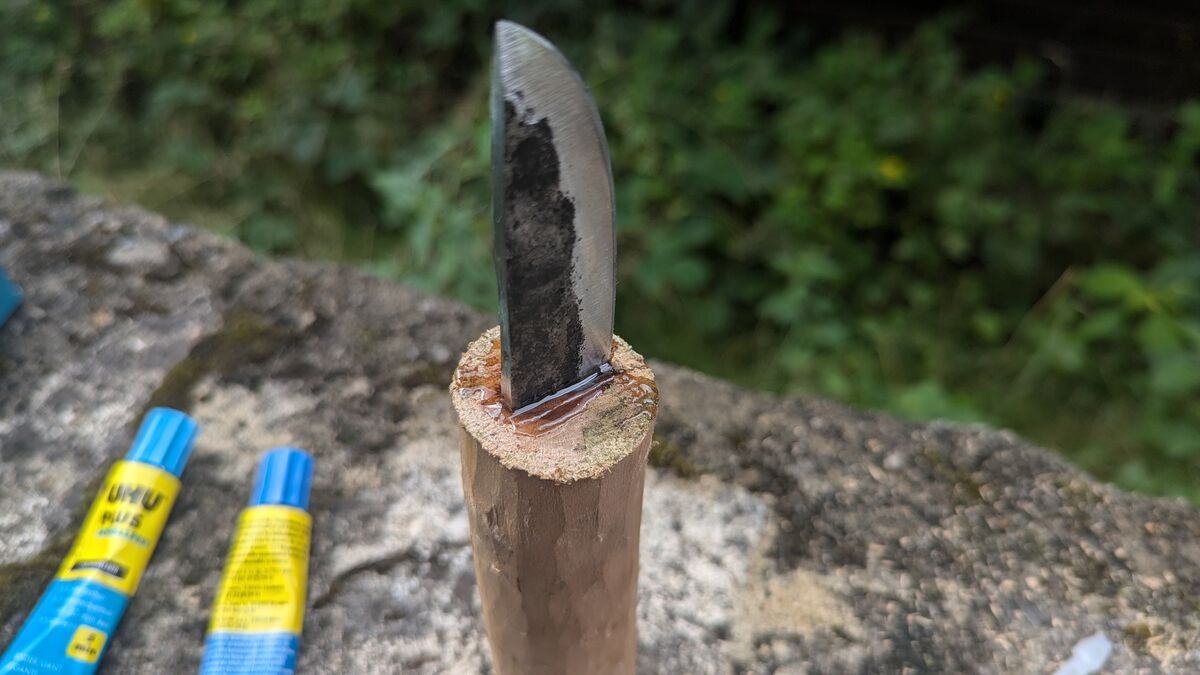
6. From Rough to Refined: Carving the Handle
Tape the blade, protect it from what is to come.
Now the magic begins, the moment when you become the creator.
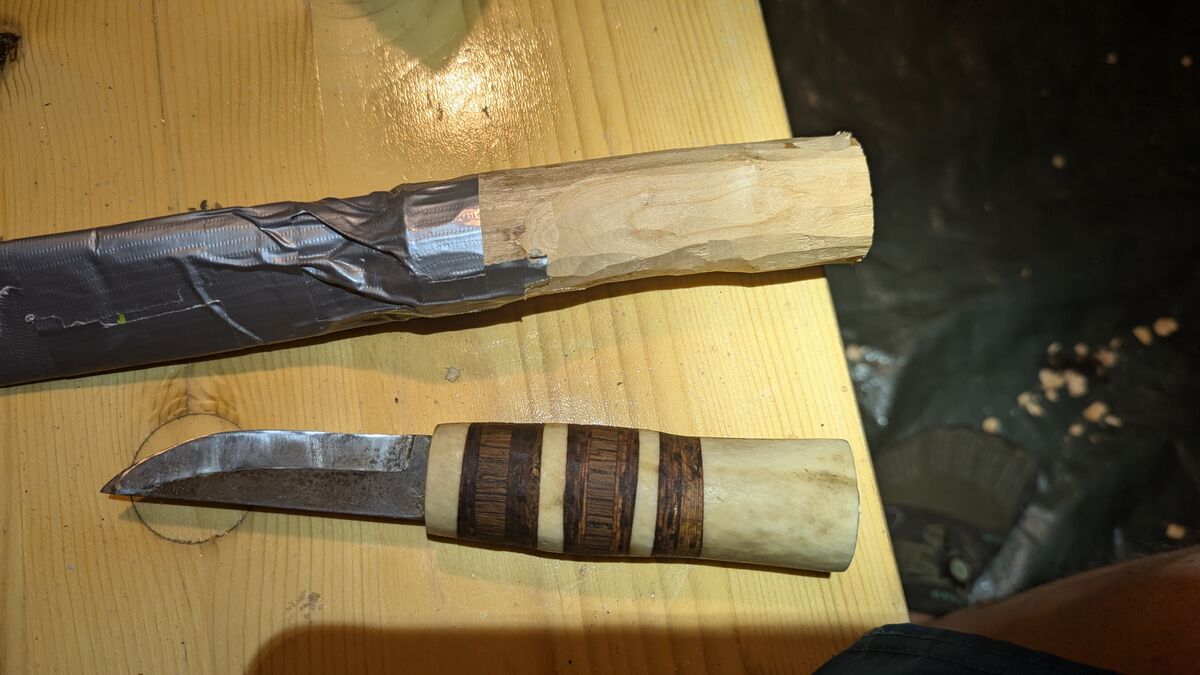
Carve. Shape. Create.
With every cut, every notch, you slowly transform the rough piece of wood into a work of art, an extension of your will and creativity.
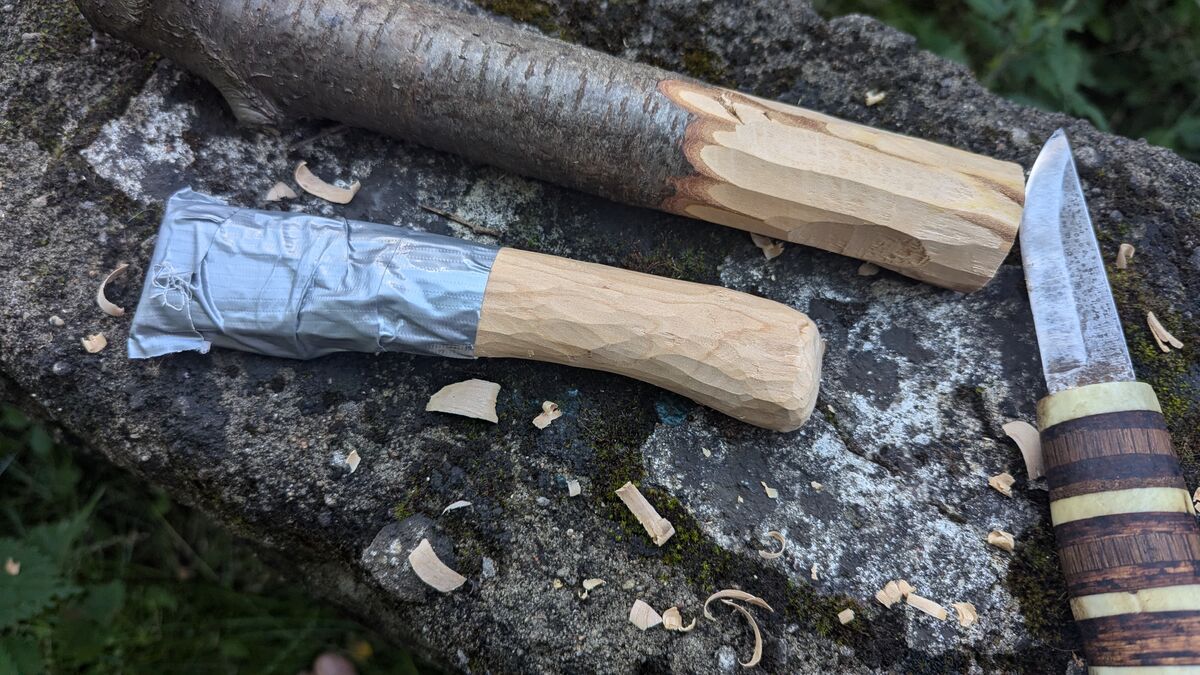
7. The final touch: Perfection in your hand
Try out. Adjust.
Again and again.
Until the handle becomes an extension of your hand, so familiar and natural, as if it has always been a part of you.
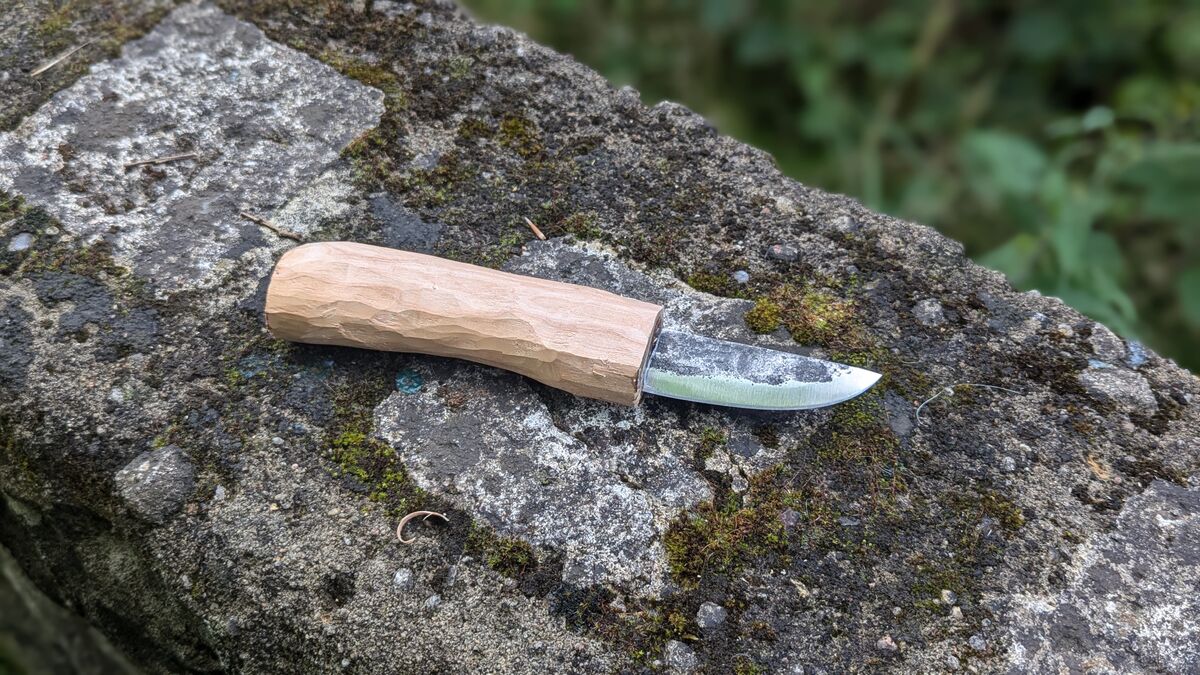
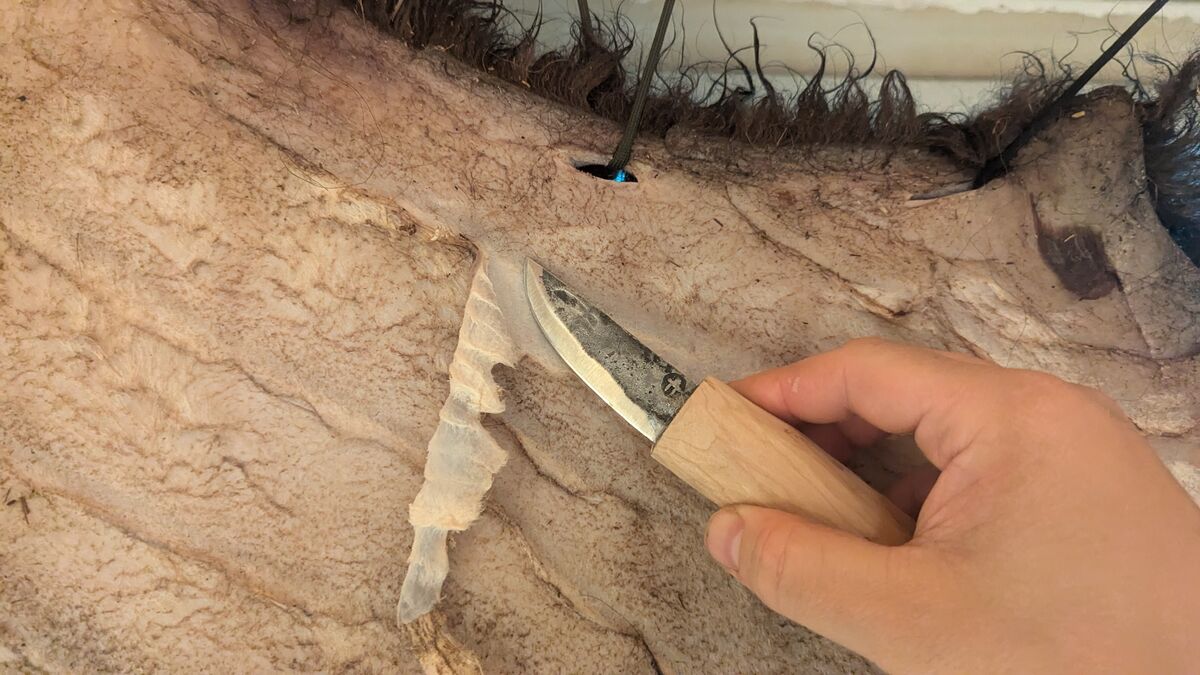
Safety First: Your Shield Against the Dangers of Creation
Before you plunge into battle with wood and steel, arm yourself:
- Wear safety goggles. Your eyes are more precious than any knife.
- Protect your hands with sturdy gloves. They are your most important tool.
- Work in a well-ventilated area, especially when handling adhesives. Fresh air keeps your mind clear.
- Keep a first aid kit within reach. Even masters bleed occasionally.
- Respect your tools. A sharp knife cuts the safest. Why? Read here.

Caring for Your New Companion: How Your Knife Can Last a Lifetime
Your knife is more than a tool. It is a loyal companion. Here you will learn how to take care of it:
- Clean it after each use. A clean knife is a happy knife.
- Oil the wooden handle occasionally. It nourishes the wood and keeps it supple.
- Sharpen the blade regularly. A sharp knife is a safe knife.
- Store it dry and safe. Moisture is the enemy of wood and steel.
- Use it with respect. Every cut tells a story.
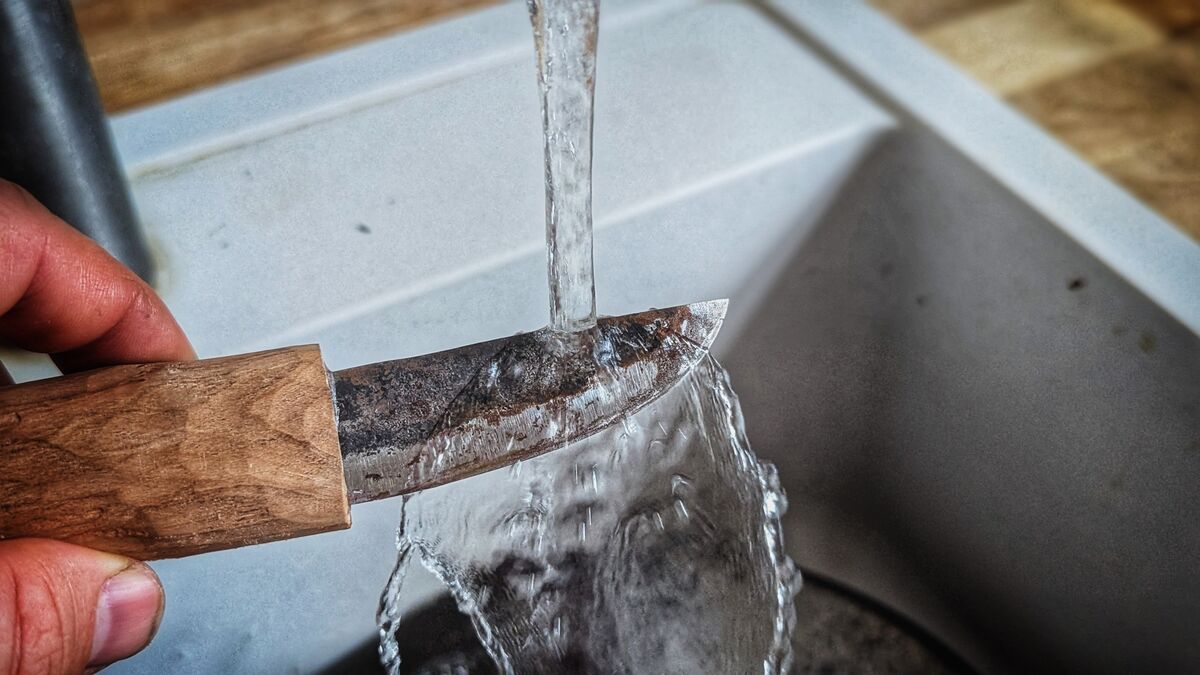
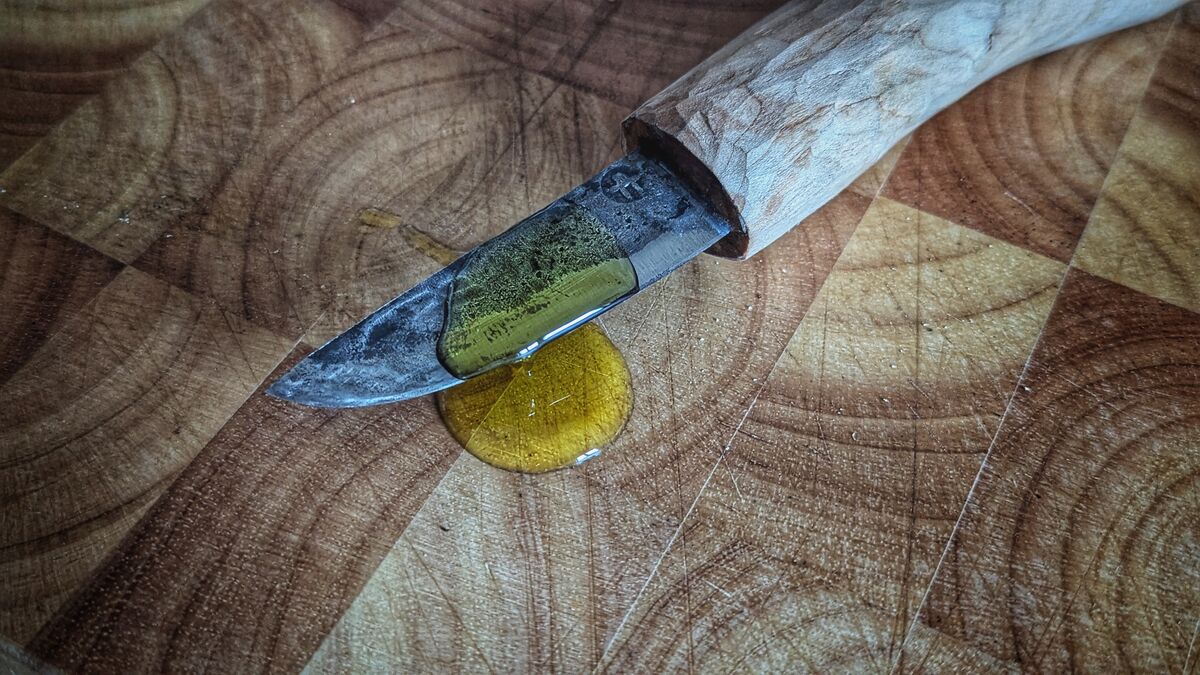
Your knife, your story, your artwork
Now you are done!
This knife is more than just a tool. It is a testament to your skills, your patience, and your creativity.
It is a part of you.
An extension of your will, forged from a single piece of steel and your knife handle vision.

Every time you pick it up, you will probably remember this journey. The challenges you overcame. The joy of creation that accompanied you through every step.
Your knife. Your story.
Are you ready to carve your own story?
P.S. Thank you, Axel. Without you, this dream would never have become a reality. Your blade was the spark that ignited the fire of my creativity.


Author of the guide
Martin Gebhardt
Hey, I'm Martin. On my blog, you will learn the basics and numerous details about living in the wild. I think survival, bushcraft and the good life in nature are the keys to happiness. Find me here on Instagram or on YouTube. You can find more about my mission on the About Me page.
Was this guide helpful?
25 people found this guide helpful.
5.00 out of 5 points (25 Ratings)
Comments (0)
This post may contain affiliate links. So if you click on the links and make a purchase, I will receive a small commission at no additional cost to you. Click here, to learn more about it.


